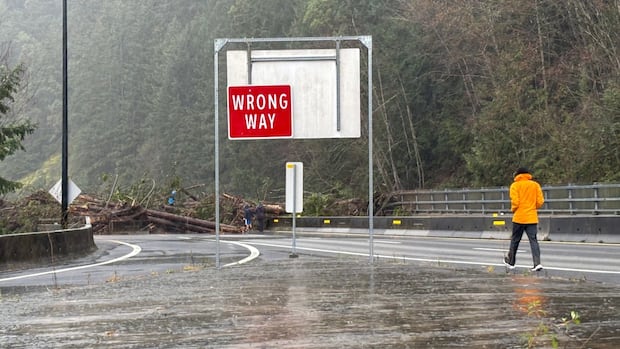Toronto streets packed for Canada’s largest Pride parade
Massive crowds thronged the streets of Toronto under a sunny sky on Sunday to take part in Canada’s largest Pride parade.
Colorfully dressed attendees cheered, danced and fluttered rainbow fans to beat the heat and blow bubbles in a show of support and celebration for Canada’s LGBTQ community, which has faced a growing number of threats in recent months and witnessed attacks on long-sought rights.
The controversial climate prompted Pride event planners in Toronto and beyond to significantly ramp up security efforts. Pride Toronto, organizer of Sunday’s parade with at least 250 groups participating, said it spent twice as much money on police this year compared to 2022.
But some attendees said the environment necessitating extra security makes it all the more important to celebrate Pride and show solidarity with the community.
Georgie Sountos and Sarah Rice sat together waiting for the parade to begin, having met earlier in the day. Rice traveled from London, Ont., to join their gay community.
Rice said this year it feels more important than ever to show up and be seen, noting that LGTBQ people in several countries are seeing their rights disenfranchised.
“Pride is a celebration, but it’s also a protest,” Rice said.
That spirit was also evident on Toronto’s Yonge Street, where protesters carried banners with slogans such as “protect trans youth” and “protect trans children”.
For Sountos, Sunday’s parade marked the last decades of Pride. The 65-year-old Torontonian said she has been coming to Pride since attendance numbers number in the tens and hundreds.
“We’re here, we’re loud, we’re proud, we count,” she said.
The march also attracted some prominent politicians, including federal NDP leader Jagmeet Singh and a handful of candidates hoping to be elected mayor of the city in a by-election scheduled for Monday.
Perceived frontrunner Olivia Chow was expected to attend, along with other mayoral candidates Ana Bailao, Brad Bradford and Josh Matlow.
Pride paradeur Kjerstin Karlsson says it’s been almost 12 years since they transitioned at age 54. While there is a growing backlash against people who are transgender, Karlsson says they have faith in the community’s strength to resist and “overcome.”

“I think I’m here for the younger generation,” said Karlsson. “I’ve been through all the things they’ve been through, so it’s important to show them there’s hope.”
Some people protested the parade on Church and Bloor streets. But Karlsson says protesters are “welcome”.
“They can protest — it won’t bother us,” Karlsson said. “If we want to be inclusive, we have to involve everyone.”
Church in Toronto celebrates 31 years of Pride service
John Farrell, director of development and communications at Toronto’s Metropolitan Community Church, says they had a full house for this year’s annual Pride celebration. It is their 31st year doing this.
“We have a lot of community members who don’t necessarily come to our church regularly because it just gives that sense of community that people really look forward to during Pride,” Farrell said.
“Today we all feel the love.”

Junia Joplin, the church’s associate pastor, says celebrating Pride has always been an act of faith for the church. Joplin says their community was founded 50 years ago, in a world “much more hostile” to queer people.
“We were founded as a community of faith that accepts people as they are, regardless of their sexual orientation or identity, so celebrating Pride is just part of who we are and part of what we do,” said Joplin.
Joplin says that while things have changed for the better for queer people, there’s still more work to be done, citing the rise of transphobia in society and the need for more gender-affirming care in Ontario and Canada.
“We have a lot of room to change things up more, but we’re thankful for the way the world is embracing queer people like it didn’t in 1973,” Joplin said.




